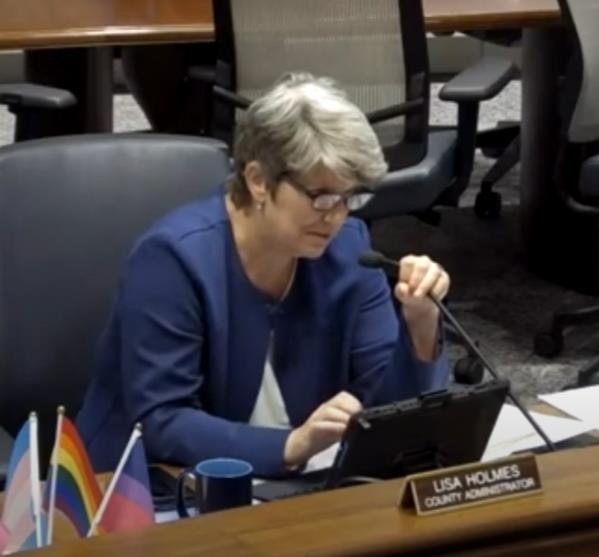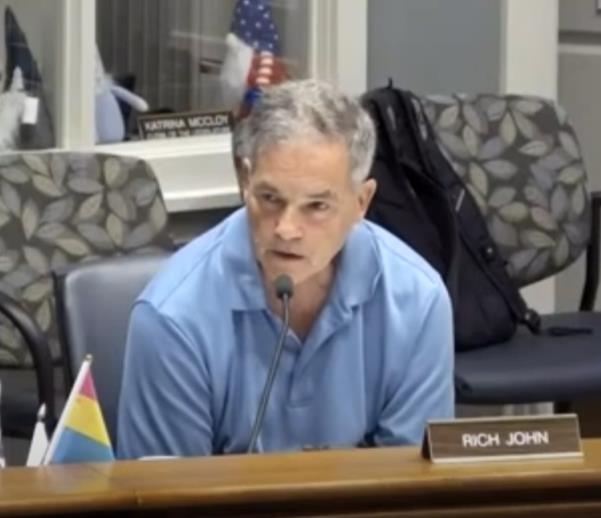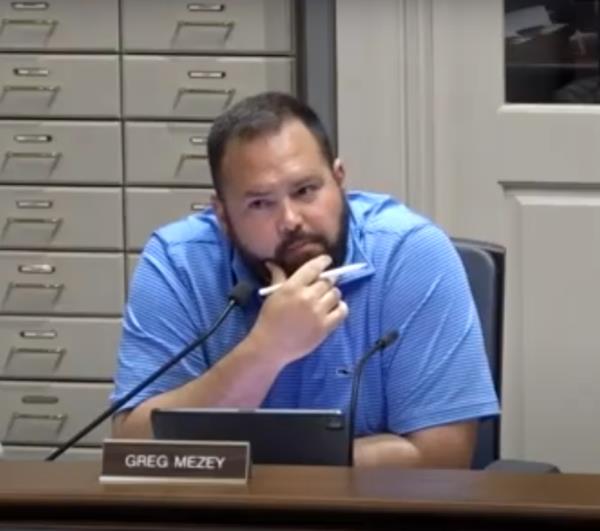TC Tax Hike estimates climb
by Robert Lynch; August 8, 2024
A struggling, Kleenex-addicted Deborah Dawson got her way Tuesday night. Isolating at home with COVID, and quite frankly, looking and sounding miserable, the Lansing legislator cast the ninth, decisive vote to reverse a decision made two months earlier. It enabled Tompkins County to override the state-imposed tax cap when it approves next year’s county budget. After the vote, Dawson zoomed out of the meeting and presumably went back to bed.

If that’s all there was, this story would be over, except maybe for us hard-core political junkies. But it’s what County Administrator Lisa Holmes said almost as an aside during the County Legislature’s relatively brief discussion of the override that makes this story deserve more ink.
Despite her best efforts, Holmes said her department may not be able to bring next year’s tax levy increase within the two per cent growth limit earlier targeted.
“We certainly are not going to be able to do everything that we have before us within the two per cent target,” Holmes acknowledged after legislator Greg Mezey pressed her on whether that earlier-set target is a doable number.
“There is going to have to be some cutting and some prioritization,” Holmes said. “I think that there would still need to be some reduction within the tax cap.”
Back at a so-called “budget retreat” held in late-April, Holmes predicted the Albany-set tax cap would this year top just over five per cent. Tuesday night, Budget Committee Chair Mike Lane revealed that the State Comptroller’s refined number now puts Tompkins County’s cap at just 4.45 per cent. The purpose of Tuesday’s vote—as well as the one in June—was to enable the local Legislature to increase the year-to-year tax levy beyond that percentage. The June 4th vote fell just one member short of the super-majority needed.
But also at that April budget retreat, legislators informally instructed Holmes to contain next year’s levy increase to within two per cent, the same percentage as it had gone up by for the current year. Holmes accepted the challenge and later told legislators she’d asked department heads to reduce their initial budget requests by five per cent, at least, when possible.
But telling a department head to cut back on people or programs is like pulling candy away from a child in that aisle at Wegmans where the toy train used to chug overhead. What’s more, state mandates lock-in spending for some offices, like Social Services. And there are also all those community agencies that come trooping the chambers and begging for money each September, to which legislators have traditionally found themselves exceedingly reluctant to say no.
“The tax cap is imposed on us by New York State at the same time they roll costs down on us, and that’s often out of our control,” legislator Rich John reminded his hesitant colleagues. As far as state mandates, John said, “It looks like what’s done is done for this year, but we don’t know. You can’t predict what New York State will do to us.”

Deborah Dawson, a former Budget Committee chair, once gave herself the nickname “Debbie Downer,” and for good reason. When it comes to budgets, she’s a fiscal pessimist. From her living room, she was true to her reputation again Tuesday. Dawson rattled off the recent warning signs: the downturn in world and domestic markets, the uptick in unemployment, and the likely decline in interest rates which would shrink County Government’s savings accounts. Perhaps most importantly, Dawson noted the “downward trend” in recent County Sales Tax reports. Shrinking sales tax receipts could bring higher property taxes just to make ends meet.
“It’s just a fiscal best practice,” Dawson said in defense of overriding the tax cap. “I understand nobody on this Legislature wants to exceed the tax cap, and to vote for this is not saying, yes, we’re going to exceed the tax cap. But if something happens… it allows us to do that.”
Everyone who’d been in legislature chambers and voted to override the tax cap back in June did so again Tuesday. The same goes for everyone who’d opposed the override. Enfield’s two legislators split on the issue. Democrat Anne Koreman supported the override. Republican Randy Brown opposed it. Brown’s two GOP colleagues, Mike Sigler and Lee Shurtleff, joined in opposition. Democrats Travis Brooks and Greg Mezey did so as well.
Mezey was most adamant. He referenced the earlier, protracted debate the Legislature had just concluded regarding the Minimum Wage [see separate story], and how difficult people have found it to “live… survive… and thrive” in Tompkins County.
“I believe passing this,” Mezey said of the override, “sends a message that’s a little tone-deaf in the moment, when things cost so much, when things are so out of control. And we asked our staff to cut, but yet we’re not willing to hold ourselves to a cap.”
Voting to exceed the cap, Mezey warned, “gives us the latitude to make what I maybe will call reckless funding decisions that will have significant impact on the cost of living in Tompkins County.”
“We should be fiscal stewards,” Mezey insisted, “and I don’t think we should get spend-happy with our tax levy.”

Though commonly misnamed a “two per cent cap,” the Comptroller-set cap bounces around from year to year, and from municipality to municipality based on a complex accounting formula that becomes so granular as to quantify revenue receipts from solar farms. The cap often sets a ceiling of two per cent. But in Tompkins County’s case, at least for this year, it didn’t. The Town of Enfield’s tax cap this year could be far different; probably far lower.
As the law stands currently, a government’s exceeding the tax cap is penalty-free. But keeping within the cap is also benefit-free. Exceeding the cap requires only a supermajority vote of a governing board; usually a simple majority plus one member more. That’s why Dawson’s vote mattered so much Tuesday night. In fact, she proposed the Resolution that requested a revisit to the failed override.
“I vote against this every year,” Mike Sigler reminded everyone. (Sigler was not present for the June vote.) “I don’t think this is best practice. I think it does send a signal to our constituents about what we are, and I don’t think that’s a good signal.”
Deborah Dawson pushed back: “I don’t think there’s anything hypocritical about us asking our staff and our departments to try to cut their budgets to the bone and then giving ourselves the leeway to spend more money because the more money that we have to spend is basically money that we spend on behalf of our staff so they can do the job that we task them to do and that Albany demands that we task them to do.”
Rich John agreed: “I bristle a little bit that this is sending any kind of message of fiscal irresponsibility,” John responded to Sigler and Mezey. “It is best practice to give ourselves room to maneuver and to make the best choices possible.”
During Tuesday’s discussion, Administrator Holmes never offered a number beyond two per cent where she thought the levy increase might fall should drastic reductions not be made beyond what’s already occurred in her departmental discussions. Nor did she say how much beyond that 4.45 per cent cap current projections may stand.
The Expanded Budget, Capital, and Personnel Committee of the Tompkins County Legislature plans its first scheduled budget-mapping session for September 5th.
###

